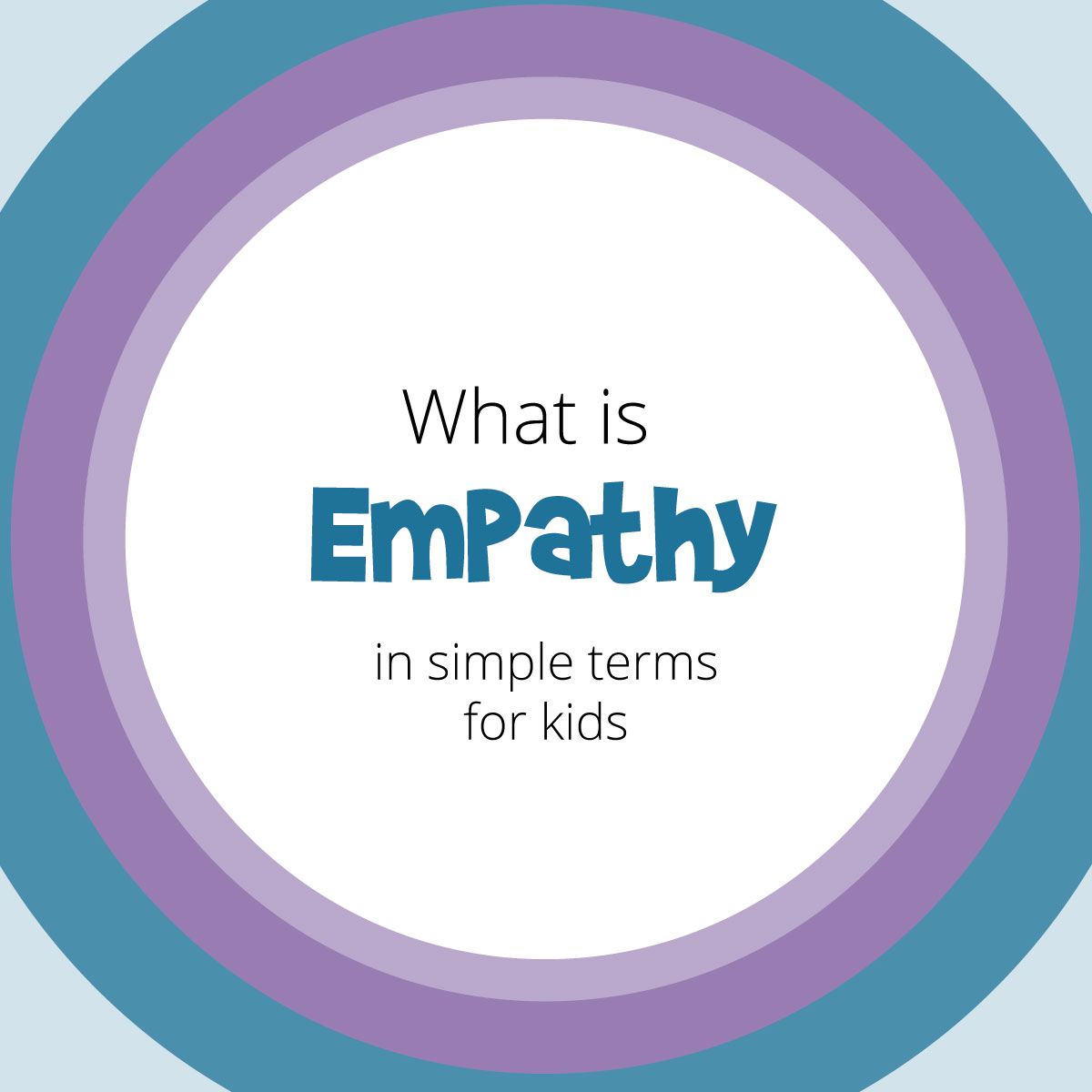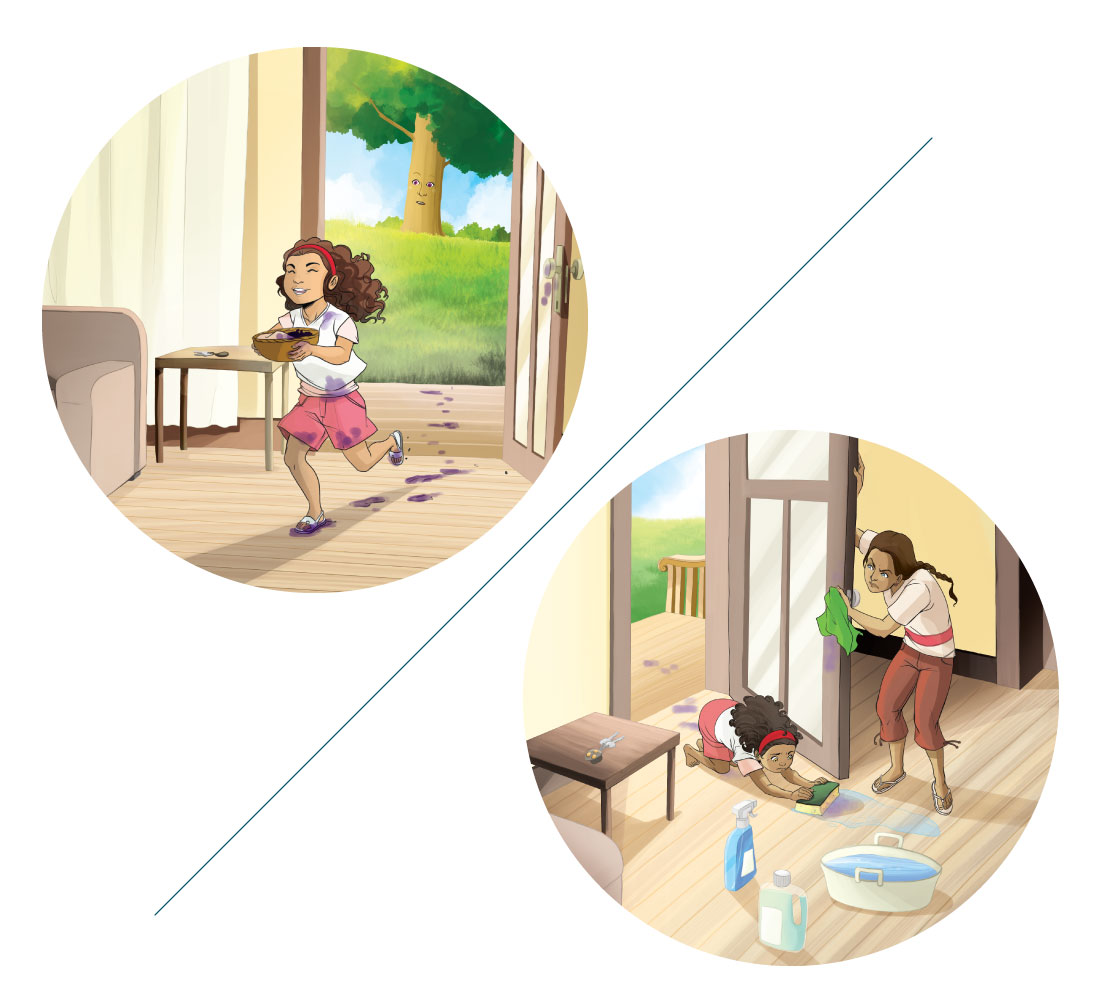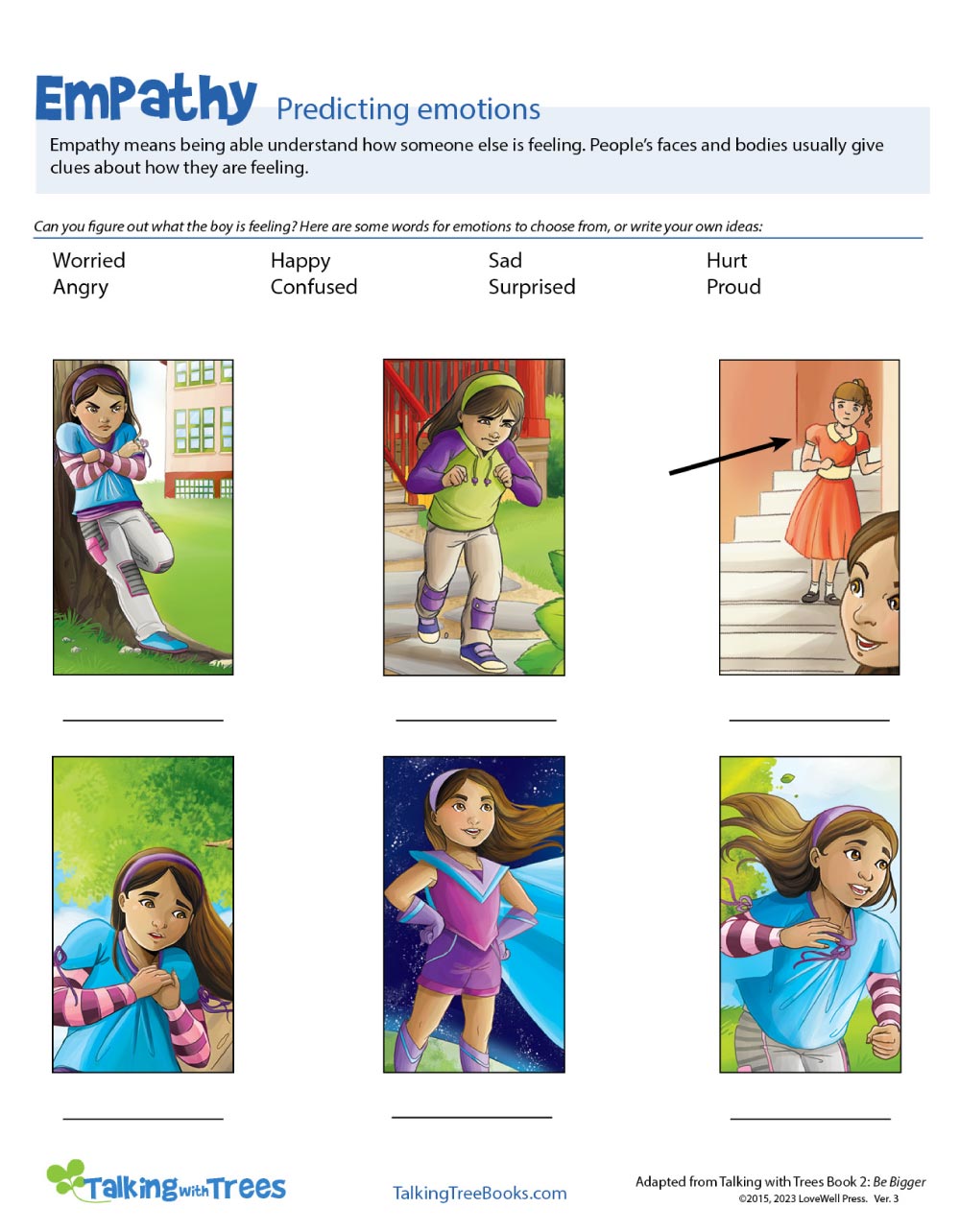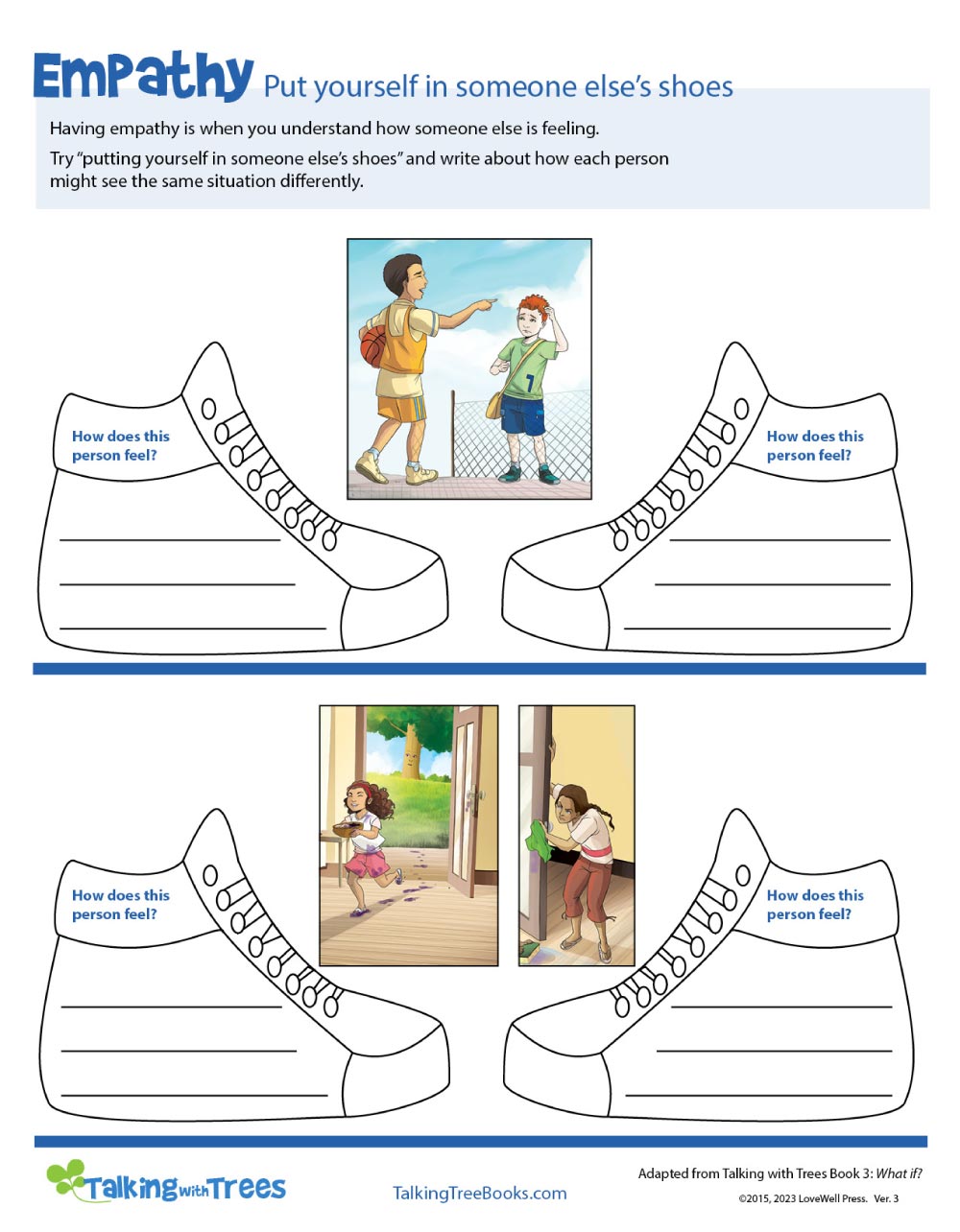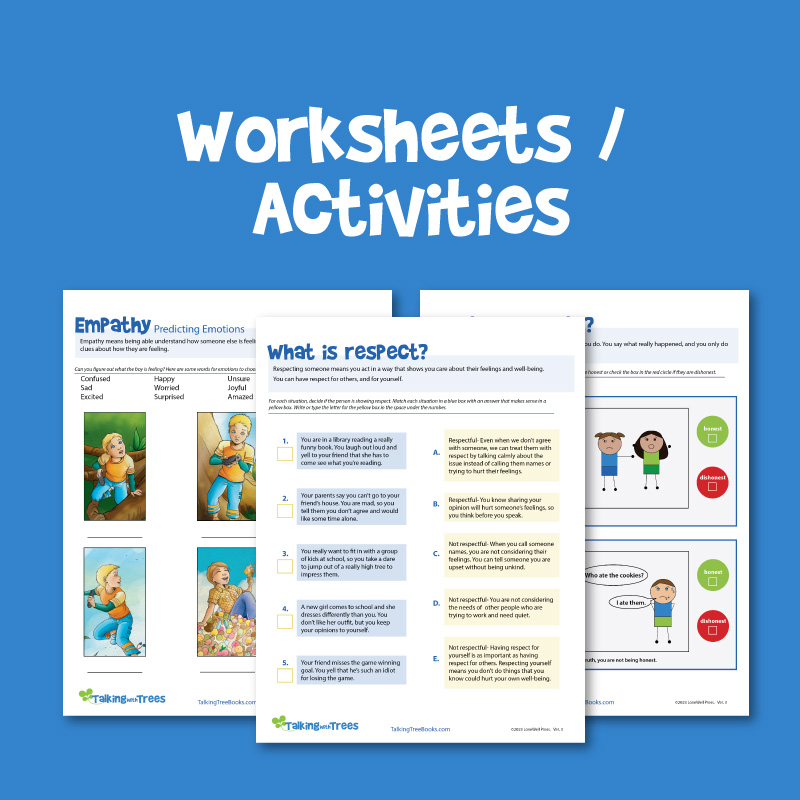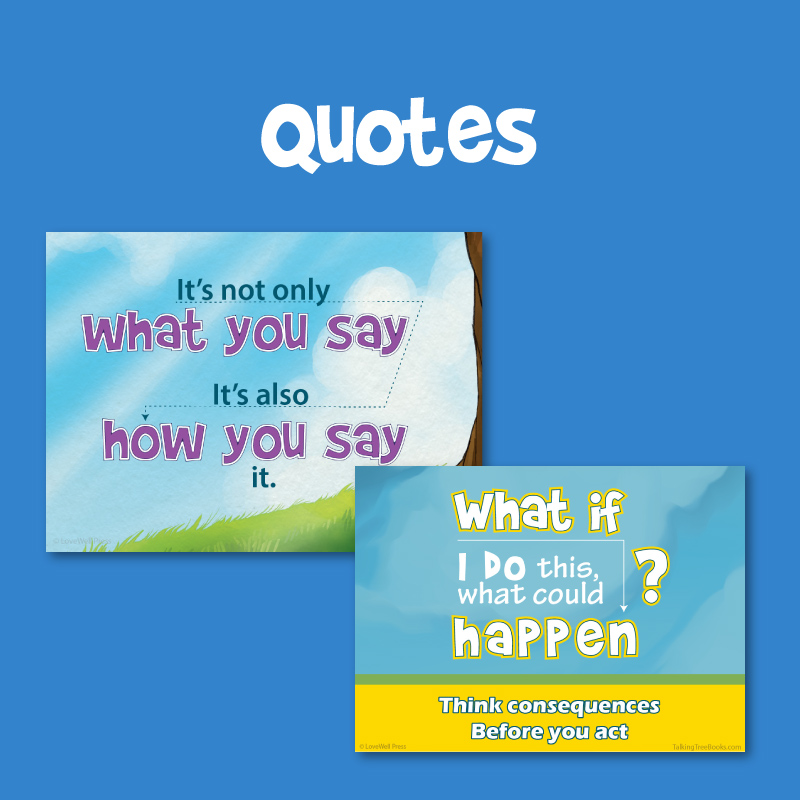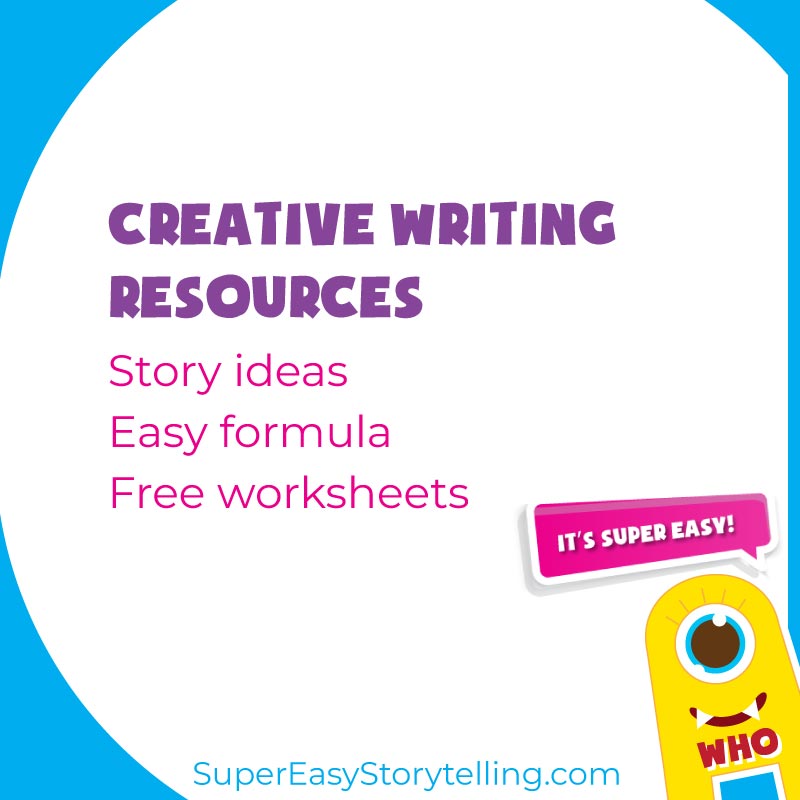What is Empathy?
A definition of empathy in simple words for children
Empathy is being able to understand how someone else is feeling.
What is empathy? Empathy is being able to know how someone else is feeling, even when you aren't in the same situation. Sometimes, in more simple words, we call empathy being able to "put yourself in someone's shoes" and see things from their view. Why is empathy important? Empathy is the first step in having positive relationships because it helps us understand and relate to others.
Empathy has two parts, shared emotion and seeing other perspectives. Both parts of empathy are ways in which we make the effort to understand other people and share an emotion with them.
Empathy is being able to understand how someone else feels.
- when you feel an emotion with someone, even if you're not in the same situation
- when you see things from someone else's perspective
For more about empathy, scroll down:
- Empathy- Shared Emotion and Seeing other people's views
- Why empathy is important
- How do you build your ability to feel empathy
- What's the difference between empathy and sympathy
Empathy Definition Part 1:
Shared Emotion
First, empathy is about sharing an emotion with someone, or feeling the way they feel, even if you aren’t in the same situation. When you feel an emotion along with someone, even if you aren’t directly affected by whatever is causing their situation, that’s empathy.
Empathy Example 1: Have you ever felt sad with a friend just because he was sad? That’s empathy! So for example, if you feel sad with your friend because he didn’t make the soccer team (even though you aren’t affected by him not making the team)… that’s empathy. Sharing his sadness is a kind of empathy.
Empathy Example 2: Have you ever been with a friend who just got a new toy and she’s so excited about it and you get super excited too? If you are feeling excited because you know how great it can feel to get a new toy (even though you didn’t get a toy and you aren’t playing with the toy)… that’s empathy. Being excited with your friend is a kind of empathy.
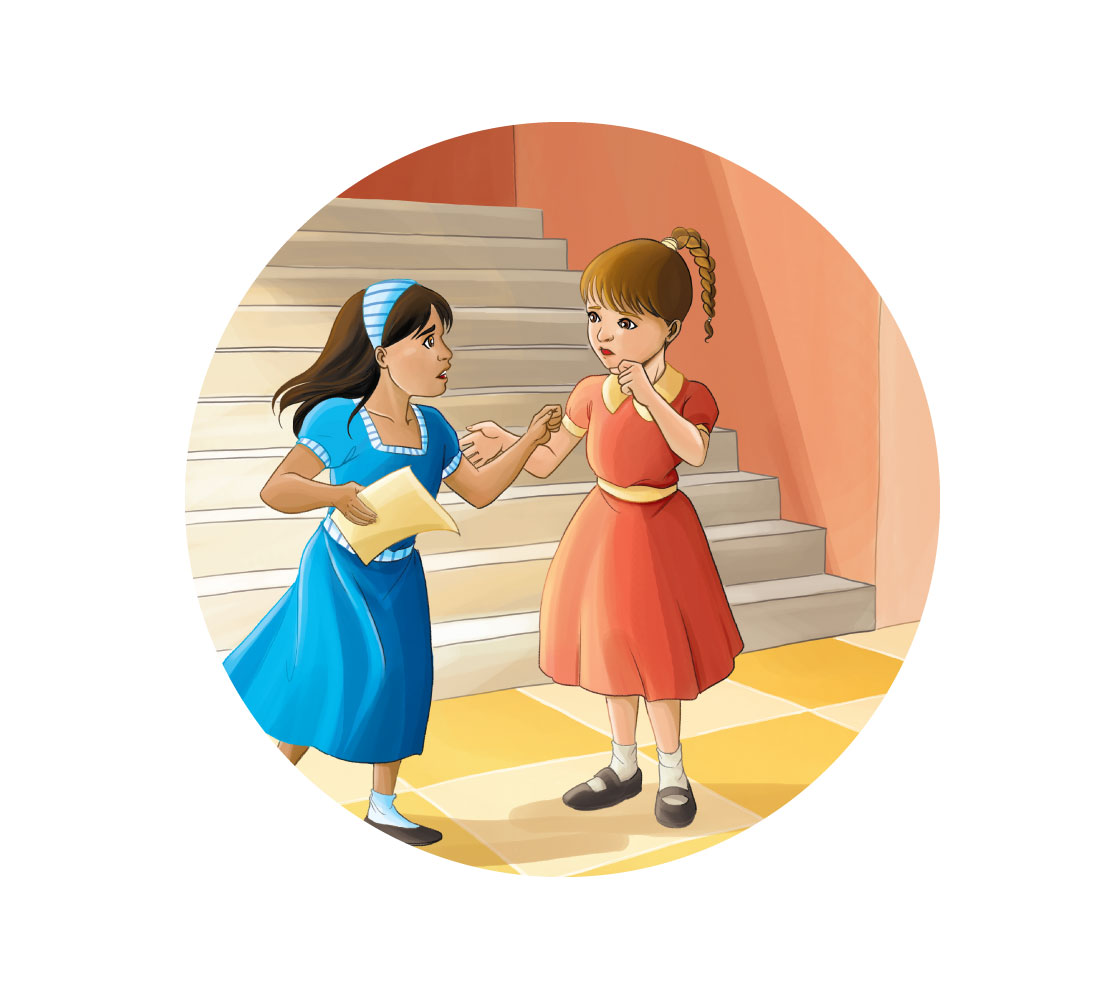
Empathy Definition Part Two:
Understanding someone else’s way of seeing something
The second part of a definition of empathy is about being able to understand someone else’s way of looking at a situation, even if you see it differently. We often call this “putting yourself in someone else’s shoes” and it means you see things from their point of view, or from their perspective. Having empathy means you can step back from the way you see a situation and think about how someone else might feel from their side of the story.
Empathy Example 1: Have you ever thought a game was really fun but your friend felt it wasn’t fair? If you saw your friend was bothered by the game and understood she wasn’t having a good time even though you were… that’s empathy. You showed empathy by understanding how things felt from her side of the situation.
Empathy Example 2: Have you ever noticed that your dad is frustrated while he’s tidying up some of your toys? You had fun playing with the toys and don’t mind them laying on the floor. But you think about it from your dad’s perspective and realize that he doesn’t like how it feels to have a messy space and he feels frustrated at having the extra work of tidying it up. When you look at the situation from your dad’s side of the story (from his perspective) and understand how he might be feeling… that’s empathy.
Why is empathy important
Empathy is really important for how we get along with people. Whether you can be a good friend, get hired for a job, be successful with a team of others… all of those things depend on being able to understand how other people might see a situation and how they are feeling. Empathy is at the root of all healthy relationships. It helps you know how your actions affect others, what actions you need to take to be a good friend or teammate, and it helps you understand more about the people and the world around you.
How do you build your ability to feel empathy?
If you want to understand empathy and build your ability to understand others, here are some great tools to start. (Try this free printable Empathy Lesson Plan.)
1. Understand the concept of empathy.
These videos about empathy show people expressing empathy in real life situations.
2. Develop the ability to read facial expressions and body language.
To understand how someone else is feeling, we need to read the cues that they give us. What does it mean if someone is frowning? What if his arms are crossed? What if someone’s eyebrows are high on her forehead? A great way to build empathy is to read picture books and look at the illustrations. What cues do the characters give that reveal how they are feeling?
3. Practice putting yourself in someone else’s shoes
Find something you and a friend don’t agree on. Try having a discussion about it as if you are the other person. What might that friend say to convince you of his point of view?
What's the difference between empathy and sympathy?
You may be wondering, “What’s the difference between empathy and sympathy?” Empathy is when you feel someone’s emotions along with them. Sympathy is when you care that someone is in a difficult situation and offer them comfort, but you don’t necessarily feel anything about it yourself.
For example, if your friend loses her iPad and you feel really sad along with her… that’s empathy. If your friend loses her iPad and you tell her “Wow, that's a bummer,” but you don’t feel bad yourself, that’s showing sympathy. With empathy, you have a more personal understanding or share someone else's emotions. With sympathy you are offering comfort even though you aren’t personally feeling emotion along with them.
Colleen Doyle Bryant
Colleen Doyle Bryant is the author of five books and more than 50 learning resources about making good choices for the right reasons. Her Talking with Trees series for elementary students and Truth Be Told Quotes series for teens are used in curricula around the world. Rooted in Decency, Colleen’s most recent release, written for an adult audience, explores how the decline in common decency is affecting wellbeing, and how we can build more trust and cooperation. Learn more at ColleenDoyleBryant.com

